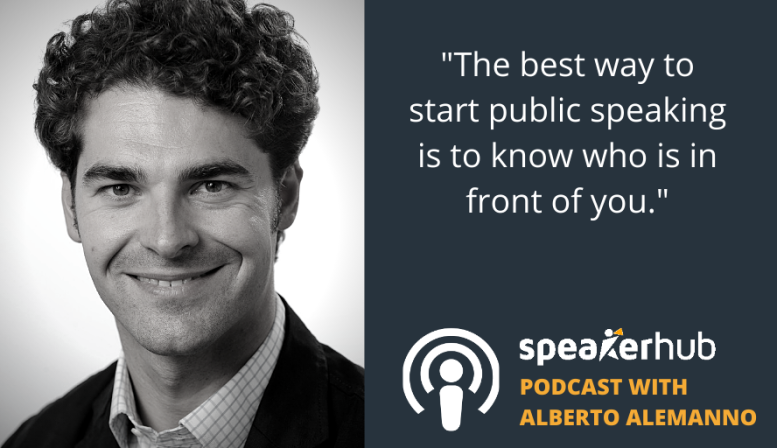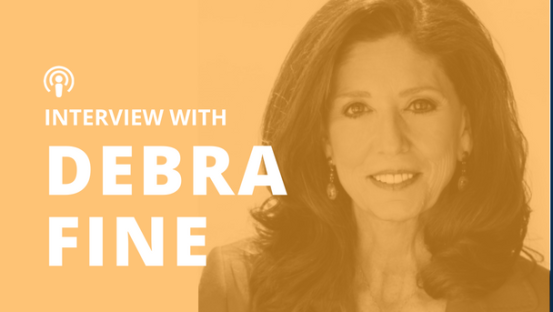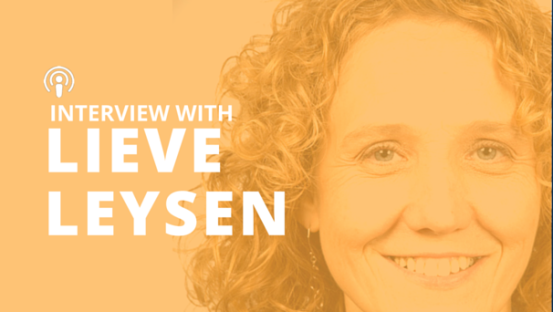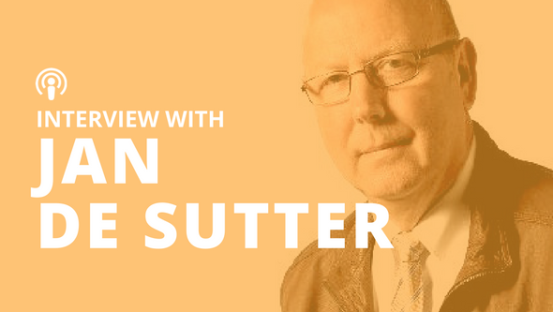Behind the Curtain: Interview with Alberto Alemanno

In this interview, we speak with Alberto Alemanno, a social innovator and public interest lawyer. He is passionate about creating authentic democracy within the European Union.
In this podcast, Alberto talks about how to use empathy in conjunction with data to make an impact on audiences. He shares with us a few ideas on how to relate to millennial audiences, as well as some advice on how to balance your talks while being genuine.
Interview with Alberto Alemanno
Q: Today we're talking to Alberto Alemanno. Alberto is a scholar and a lobbyist, who creates new and innovative ways for the public to have a louder voice when it comes to creating new policies in the EU. Alberto, to start us off, can you tell us what inspired you to create eLabEurope?
A: eLabEurope is an attempt made by an academic to fill the gap between academic thinking and reality, by creating synergies between scholars and policymakers to engage, underrepresented citizens, NGOs, and lobby in the public interest. Our objective at eLabEurope is to promote public participation, civic engagement in Europe and beyond, by experimenting in new forms of participatory democracy and advocacy in the public interest.
We have three major initiatives at eLabEurope. We aim to educate Europeans, so increase literacy when it comes to the function of the EU. We register a massive open online course to achieve that objective.
The second mission is experimenting within Europe. We train young students in the so-called “European Clinic.” They learn which are the major avenues of participation in the EU, how to represent, and the different represented groups.
The third mission is empowering Europeans through a new platform, which is called The Good Lobby, that enables professionals to provide on a pro bono basis their skills to civil society organizations, mainly active in the European decision making process.
Q: Can you tell us what have been some of the effects of eLabEurope?
A: The first effect of eLabEurope has been to build an audience of young (and less young,) citizens willing to spend time thinking about how to improve the European Union: how to make the EU a less bureaucratic organization, and how have more autonomy in the organization.
We have quite a broad community of individuals who find themselves represented by what eLabEurope is trying to do when improving literacy about the EU when talking about Europe, perhaps according to a different narrative which is a bit less institutional, and a bit closer to their daily life.
Q: How did you get started with this? What inspired you to start eLabEurope?
A: The inspiration of eLabEurope comes from my experience as an educator: as a teacher. I spend a lot of time in the classroom. I had the chance to see the so-called “millennial” generation popping up, and realizing that this new generation is very much driven by purpose, by social codes, and their desire not only to learn about the subject matter of the EU (or any other subject,) but trying to see how they can use the knowledge I have in order to pursue their own missions, what they really cared about. It could be one policy area like the protection of the environment, or it could be about their own professional goals.
At the end of the day, they are more driven than generations in the past, so I wanted to channel this desire for action outside of the conventional academic channels.

Q: How do you help facilitate these millennials in making change in Europe?
A: I would say that our last project, The Good Lobby, is possibly the one that presents the highest potential in channeling their potential, the potential of the millennials.
The massive open online course, gave them a basic understanding of how the European Union works, and how we can provide them an opportunity. But it is The Good Lobby, as a platform: connecting their talents with NGOs. This really provided the chance to test their own knowledge and experience, and to gain a first-hand experience of what it's like to interact with the European institutions in order to represent the interest of civil society organizations, who might not have the knowledge or rigor for interacting with institutions as they would big corporations and lobby groups.
Q: Can you tell us about how to talk to millennials?
A: I think you have to talk to millennials as you talk to anybody else. We should not put them on the top of a statue, or transform them into a sort of new animal species, but certainly millennials are different than previous generations.
They have been living in a fast changing world. They have been living in a society where corporations are striving to achieve a non-economic objective through corporate social responsibility. So they are becoming more and more sensitive to what is the corporate identity of that particular brand before making a choice. They are also quite apolitical, and they're not as sensitive to political language.
Finally, I would say they're extremely demanding! Demanding in the way in which you share information with them. Just to give you an example: giving them basic knowledge, basic information, might not be enough. They want to have that information packaged in a way that is sexy, that speaks to them, that is kind of snappy and smart.

Q: Can we move on to talk a little bit about the public speaking that you do? Can you tell me a bit about what your objectives are?
A: Yes, I'm in education because I love teaching, and I believe anyone who likes teaching loves public speaking. This is my case. I've been teaching since I was twenty four when I became a teaching assistant at the College of Europe in Bruges, and since then, I've been teaching in universities all across the world; in Georgetown, NYU, Harvard, Moscow, Toshinho, as a visiting professor in these universities. But on the side of my teaching, I been public speaking for civil society organizations, sometimes corporations, and which I really like.
Most of my talks revolve around my own research, which itself revolves around the EU. So I talk about Europe, about how the EU works, how we can possibly provide opportunities for citizens but also for companies. But sometimes I depart from my own comfort zone research area, and I venture into new topics. I had the chance to talk at TEDX a few times, and I never talk at TEDX about my own research.
I've always been talking about different kinds of subjects that really make me passionate, because I think that public speaking should also be inspirational. That's what I try to do when I talk in public, is to inspire my audience by provoking them a little bit. Trying to make them think out-of-the-box, and offering avenues for change for their life improvement.
I think the words that I'm always trying to keep in mind when opening my mouth in front of people or a smaller audience is: try to inspire these people in front of you.

Q: How do you do that? How do you catch their attention and keep it during your talk?
A: I think that the best way to start public speaking is to know who is in front of you. You need to clearly adapt to your target audience, and I think this is really a talent. It's not something you learn, it's something you have to feel.
You need to be capable to adapt to the intensity of the way people look at you, or listen to you, or lose attention to what you are saying. You need to adapt to what they want to hear. That's the art. There's an art of public speaking, but not really a science. Of course you learn about techniques over time, and as an educator, I need to learn techniques in order to keep the attention very, very high in the classroom. But in public speaking in general, I think it all comes down to what you feel during your talk.
To reply to your question: I think the recipe for effective public speaking comes down to being capable to merge very objective presentation of data and facts with a more emotional component; something you really feel strongly about. If you can strike the right balance between the informational part and the emotional one, then you might really get a splash.

Q: Then as the speaker how do you balance speaking to people's emotions and then also giving them the data?
A: I believe that (although it's very sensitive to do so,) the speaker has to find an emotional, empathic way of connecting to the public. This boils down to identifying personal stories that might speak to the audience, because the audience might have experienced the same, or because it might be sensitive to the very same circumstances or scenarios that are described by the speaker. But there's no magic formula, I don't think there is a silver bullet. It depends very much on the topic you want to present, and depends on the audience.
Once more, I think that the magic of a good public speech really has to do with the connection and interaction between the speaker and the audience. The speaker alone is not enough, and the audience alone isn’t either. You have to find ways to interrupt and to build bridges between the two, even though the public, by definition, is going to be silent for awhile, at least during the presentation itself. After there could be more tangible interactions.
Despite that it's a unilateral monologue type intervention of the speaker, the speaker and the public should be able to bond.
Q: It's all about building connections with the audience, even though the audience can't necessarily respond.
A: Yes.
Q: Do you have some advice for speakers that you could offer?
A: Speakers need to feel comfortable with the audience and the topic they were asked to talk about.
This is a sort of pre-condition for allowing the speaker to have a chance with the audience. Once the speaker feels quite at ease in front of the audience, and quite at ease in relation to the topic, it is up to the speaker to work very carefully on the crafting of the speech. Trying to identify at all a language you might be familiar with, but also comfortable with, and then train, train...train...train (meaning prepping.) Prepping is essential. If you can master not only the content, but also the way in which you're going to convey the message, you're going to do much better.
This doesn't necessarily mean that you need to know your speech by heart. This might actually backfire. When it is too perfect, too neat, and not empathetic; it's not felt. Do not overdo the preparation, but reach that stage in preparation that enables you to feel comfortable when on stage, and also to have a safety net. Remember what you want to say and how you want to say it, but without necessarily knowing everything by heart.
Usually the prepping should entail two repetitions, you have to simulate the talk at least twice. But no more than that. Because if you do, then you will reach that stage that is counterproductive.

Q: Then you get into it being too perfect, too planned out, and not empathetic enough.
A: Exactly.
Q: Thanks for that advice. I have one last question for you: what's coming up next, or what are you working on at the moment?
A: At the moment, I’m working full-time on the launch of The Good Lobby: this platform that connects professionals, academics, and students with civil society organizations. This is a skill-shared platform that tries to leverage on the potential that each of us has; we all have talents in doing something. If we are able to share this talent and this potential with organizations who might have some need, we could possibly address the current inequalities existing in the policy process.
I am very concerned as a citizen, as a researcher, and as an educator, in the way in which big policy discussions take place in Europe and other parts of the world. We could discuss about how to regulate the data protection, or about how to regulate fracking and non-conventional oil, about how to reform our policy with immigrants. Every single time a new policy debate takes off, we all feel that there's an imbalance; imbalance between organizing interests that speak very loudly (who share the same language with the policy makers,) and all the others, usually the citizens who don't really have a voice, or if they do is not really a voice that is heard by the policy makers. This gives rise to inequality. It might perpetrate inequality, and I think there is a way to tap into the potential of each of us in order to address that inequality.
The Good Lobby tries to achieve that objective, or at least to make a first step. Enabling anyone from one day to another, to gain that kind of experience, to defend their position. So the challenge is really to democratize lobbying, enabling anyone to speak louder when it comes to policy process, and to engage anyone, either by acting alone, (what I call citizen lobbying,) or by supporting another existing organization, which is still part of a citizen's lobbying avenue.
The objective is to make it more inclusive, so to make sure that everybody would have a voice at the table. This is not necessarily the case today. Woody Allen used to say that success in life is basically about showing up. At least eighty percent of success is about showing up. If this is true, then we have to make sure that everybody has a seat at the table. So there will be a seat waiting for anyone who has something to say about the particular issue.
We want to create those conditions which, if you want are pre-conditions, pre-requirements, for having a democratic debate about issues that affect our individual in daily life.

A bit about our speaker:
Alberto Alemanno is working diligently to provide the public with an avenue to have their voices heard when it comes to new policies within the European Union. By giving inspiring talks and creating innovative online platforms, he promotes civic participation and engagement on a new level.
He was named 2015 Young Global Leader by the World Economic Forum and is currently Jean Monnet Professor of Law at HEC Paris and Global Clinical Professor at NYU School of Law where he is the Faculty Director of the EU Clinic. He is also the founder of eLabEurope and GoodLobby, which are civic start-ups that promote civic participation and engagement in Europe.
Want more speaking engagements? Sign up as a speaker to SpeakerHub here. Have any feedback about this interview? We’d love to hear it, contact us.
Want to find out more about Alberto Alemanno’s work, or directly get into contact with him? Here are some links you might find helpful.
Links:




